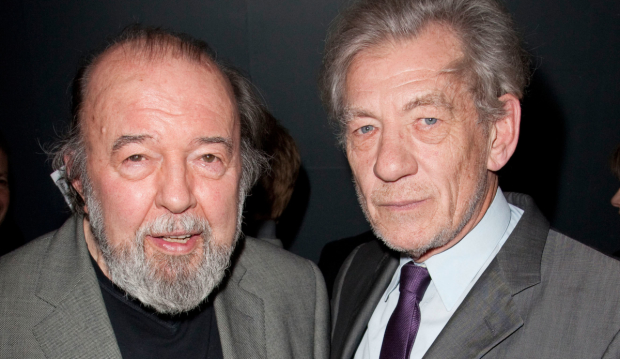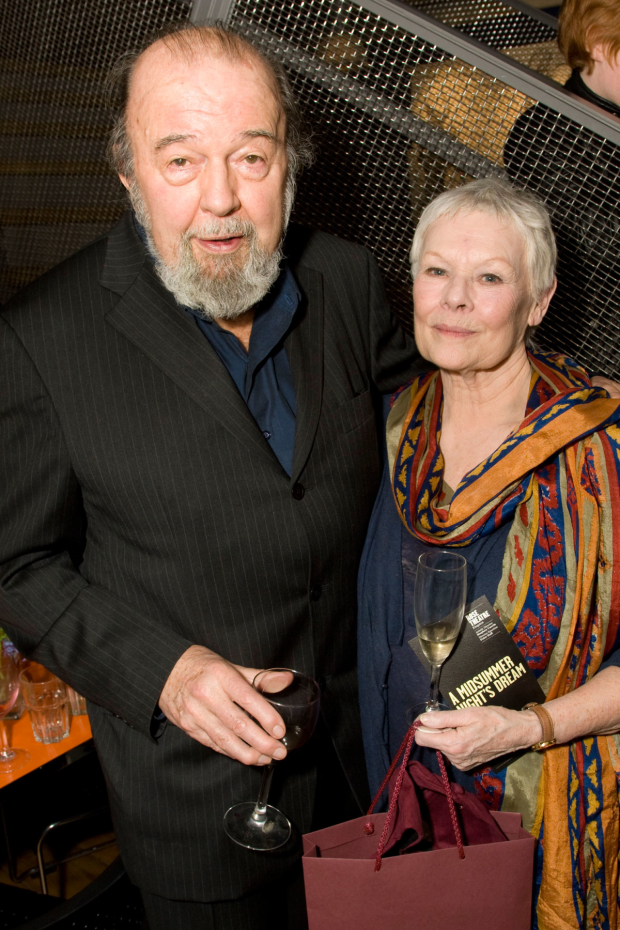Peter Hall achieved his remarkable vision despite opposition on all sides
Michael Coveney pays tribute to the late founder of the Royal Shakespeare Company and director Peter Hall

© Dan Wooller for WhatsOnStage
Greg Doran was right to label Peter Hall a colossus at today's RSC press conference. He is the giant of our 20th century theatre, establishing the RSC in Stratford-upon-Avon and London in 1960 as an avowed producing house of Shakespeare and his – and our – contemporaries. I’ve always thought of Ian Holm’s back-to-back performances as Richard III and as Lenny in Pinter’s The Homecoming as the best illustration of this – then radical, now sadly forfeited – RSC principle.
It’s worth remembering, too, what a struggle he had, despite his charismatic personality and powers of persuasion. No-one wanted the RSC, least of all the burgeoning National, but he pushed his vision through with the key support of Peggy Ashcroft, Peter Brook and the Stratford brewery magnate, Sir Fordham Flower, who was the chairman of the Stratford theatre.
Power-crazy and manipulative was the common cry
Ironic, then, that he succeeded Olivier as director at the National, and led the transition from the Old Vic to the new home on the South Bank despite opposition on all sides: in the theatre profession itself, in the media and, most frustrating of all, in the strike-prone workforce building the place. I vividly remember his great "coffee table" speech of defiance as he was forced to close the Cottesloe (now the Dorfman) in 1985, vilified by government and Arts Council alike.

© Dan Wooller for WhatsOnStage
"That dreadful man," Mrs Thatcher would call him when, of course, he was the opposite of that. Power-crazy and manipulative (well, she would know) was the common cry, but his own personal ambition was subservient always to the greater cause. He had a rare talent of being able to make you – anyone – feel you were the most important person in the room when he spoke to you.
He changed the life of everyone who works in, writes about or merely goes to, the theatre
He summoned me to lunch at the National and suggested I try piping down a bit and get off his back. By the time we got to coffee he was urging me to remain as difficult as I pleased and carry on writing, enthusing and disagreeing. Many years later, I turned up at the Rose in Kingston (which he opened in 2008) two hours early to have something to eat. He loomed in his large coat, exclaimed on my over-obsessive punctuality and asked could he join me in Carluccio’s for a bite and a chat. It was one of the most elating ninety minutes of my life; and I got a good article out of it, too.
He changed the life of everyone who works in, writes about or merely goes to, the theatre. He made the best possible arguments for subsidy in the arts, and his legacy will never be surpassed or forgotten. At ground level, he supplied some of my greatest theatrical experiences: the David Warner Hamlet and The Wars of the Roses at Stratford; the best ever revival of Britten’s A Midsummer Night’s Dream at the old Glyndebourne; The Homecoming, and Gielgud and Richardson in No Man’s Land; Tony Harrison’s Oresteia; Vanessa Redgrave in Orpheus Descending; Paul Scofield in Amadeus. Bravo, titan.














